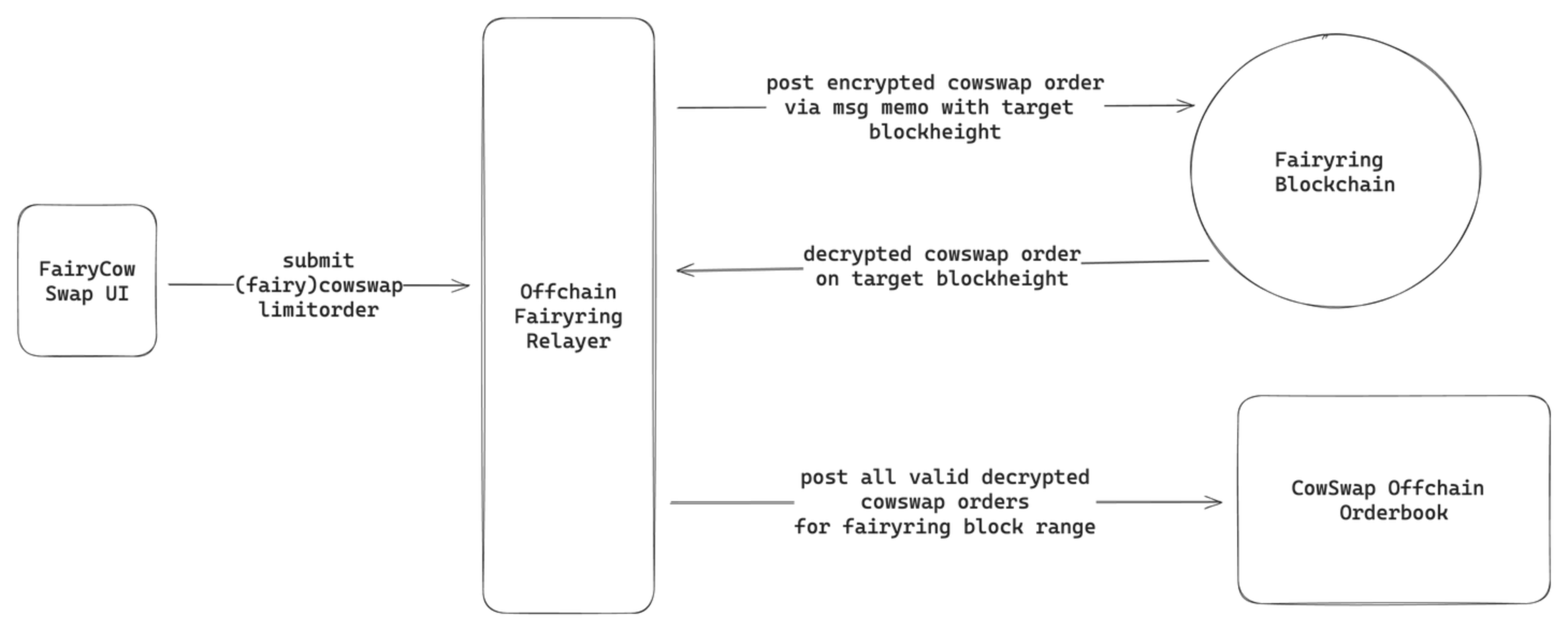CoW Swap is the first trading interface built on top of CoW Protocol.
It allows you to buy and sell tokens using gasless orders that are settled peer-to-peer among its users or into any on-chain liquidity source while providing MEV protection.
| Platform | Link |
|---|---|
| 🐮 CoW Swap 🐮 | swap.cow.fi |
| CoW Swap (IPFS) | Every release is deployed automatically to IPFS (Releases) |
| CoW Swap (ENS) | ens://cowswap.eth or (cowswap.eth.limo) |
| CoW Protocol | cow.fi |
| Docs | docs.cow.fi |
| Governance (Snapshot) | snapshot.org/#/cow.eth |
| Stats | dune.com/cowprotocol/cowswap |
| X/Twitter | @CoWSwap |
| Discord | discord.com/invite/cowprotocol |
| Forum | forum.cow.fi |
First install Dependencies:
yarnStart CoW Swap on http://localhost:3000
yarn startBuild the project. The static files will be generated in the build folder.
yarn buildyarn testStart the Explorer on http://localhost:4200
yarn start:exploreryarn build:explorerStart the Widget Configurator on http://127.0.0.1:4200/widget-configurator
# Start
yarn start:widget
# Build
yarn build:widgetStart the Cosmos UI Library on http://localhost:5000
yarn run cosmos
⚠️ To run the tests. Make sure you add the required environment varianbles to your.env.localfile with:
INTEGRATION_TEST_PRIVATE_KEY=<your-private-key>: Private keyINTEGRATION_TESTS_INFURA_KEY=<your-infura-key>: Infura key
To launch it with our development server (so you have live-reloading):
yarn start
yarn cypressAlternatively, you can build the project and launch the integration test.
yarn build
yarn integration-testIf we want to use the Cypress UI:
yarn build
yarn serve
yarn cypressCoW Swap has a library of reusable components.
yarn ui:build
yarn ui:testyarn buildAnalyze CoW Swap bundle:
# Use one of the following templates: "sunburst" | "treemap" | "network" | "raw-data" | "list";
ANALYZE_BUNDLE=true ANALYZE_BUNDLE_TEMPLATE=sunburst yarn buildYou should set your own RPC endpoints.
One simple way to do this, is by defining your own REACT_APP_INFURA_KEY environment var.
Alternatively you can define the RPC URLs directly with the following environment variables:
REACT_APP_NETWORK_URL_1: https://...
REACT_APP_NETWORK_URL_11155111: https://...
REACT_APP_NETWORK_URL_100: https://...Additionally, if you plan to run the integration tests locally you must define:
INTEGRATION_TESTS_INFURA_KEY: YOUR_INFURA_KEY
INTEGRATION_TESTS_PRIVATE_KEY: YOUR_TEST_WALLET_PRIVATE_KEYFee quote requests and posting orders are sent to the Orderbook API. This API has the responsibility of collecting orders and handing them to the solvers.
The reference implementation of the API is CoW Protocol Services.
The API endpoint is configured using the environment variable REACT_APP_ORDER_BOOK_URLS:
REACT_APP_ORDER_BOOK_URLS='{"1":"https://YOUR_HOST","100":"https://YOUR_HOST","5":"https://YOUR_HOST"}CoW Swap tries to find the best price available on-chain using some price feeds.
All price feeds are enabled by default, but they can be individually disabled by using an environment variable:
| Name | Environment variable | Type | Description |
|---|---|---|---|
| 1inch | REACT_APP_PRICE_FEED_1INCH_ENABLED |
boolean (default = true) |
Paraswap price estimation. Used for all price estimations. |
| 0x | REACT_APP_PRICE_FEED_0X_ENABLED |
boolean (default = true) |
0x price estimation. Used for all price estimation. |
The app will attach some metadata to all orders.
This metadata will be sent to the smart contract as a hexadecimal value in an order field called AppData. This value comes from hashing the content of a metadata JSON containing some information about the trade (using keccak256 on the UTF-8 bytes).
The format of the JSON follows the format defined in @cowprotocol/app-data.
To set your own AppData, change REACT_APP_FULL_APP_DATA_<environment> environment variable. For more details, check out the environment file (<.env>)
The sitemap can be found in <./public/sitemap.xml>
To update its content:
- Edit the list of pages in <./src/sitemap.js>
- Run
yarn sitemap - Commit the changes to git
In case of problems with the service worker cache you force a reset using emergency.js The plan:
const resetCacheInCaseOfEmergency = false- changefalsetotrue- Deploy a new version to production
emergency.js is not cached by browser and loaded before all.

